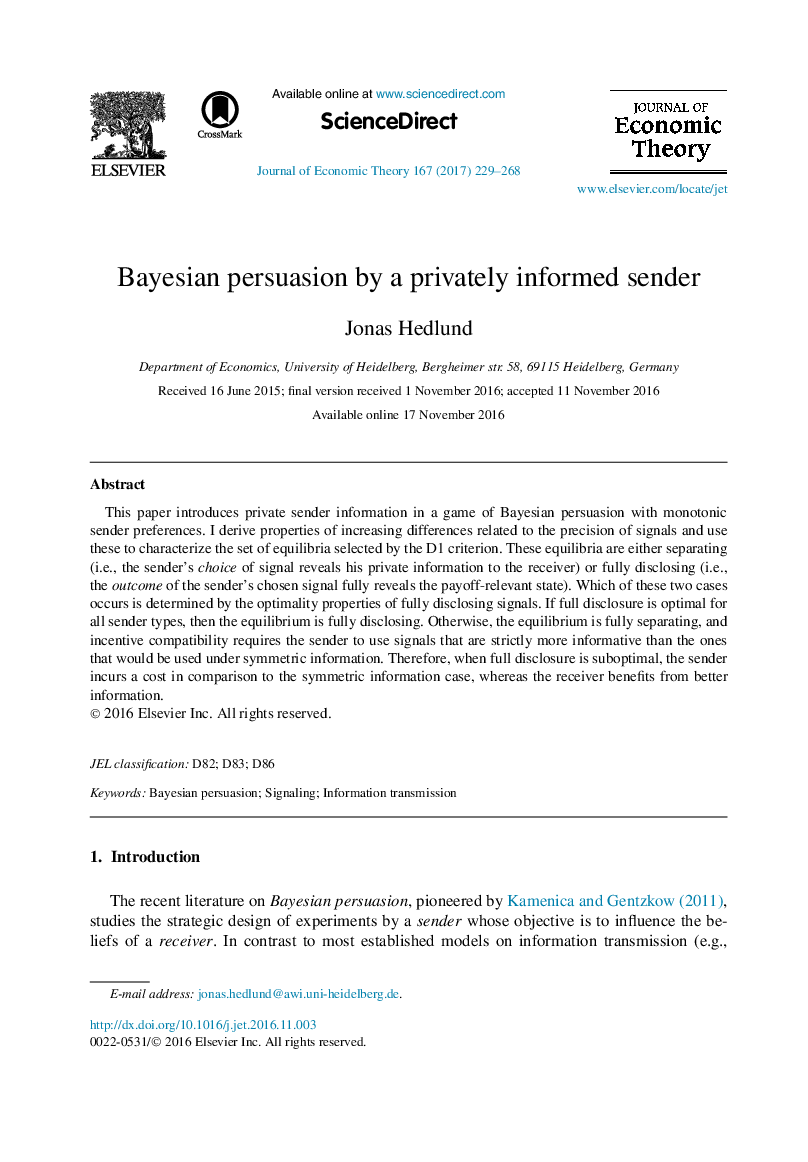| Article ID | Journal | Published Year | Pages | File Type |
|---|---|---|---|---|
| 5100148 | Journal of Economic Theory | 2017 | 40 Pages |
Abstract
This paper introduces private sender information in a game of Bayesian persuasion with monotonic sender preferences. I derive properties of increasing differences related to the precision of signals and use these to characterize the set of equilibria selected by the D1 criterion. These equilibria are either separating (i.e., the sender's choice of signal reveals his private information to the receiver) or fully disclosing (i.e., the outcome of the sender's chosen signal fully reveals the payoff-relevant state). Which of these two cases occurs is determined by the optimality properties of fully disclosing signals. If full disclosure is optimal for all sender types, then the equilibrium is fully disclosing. Otherwise, the equilibrium is fully separating, and incentive compatibility requires the sender to use signals that are strictly more informative than the ones that would be used under symmetric information. Therefore, when full disclosure is suboptimal, the sender incurs a cost in comparison to the symmetric information case, whereas the receiver benefits from better information.
Related Topics
Social Sciences and Humanities
Economics, Econometrics and Finance
Economics and Econometrics
Authors
Jonas Hedlund,
